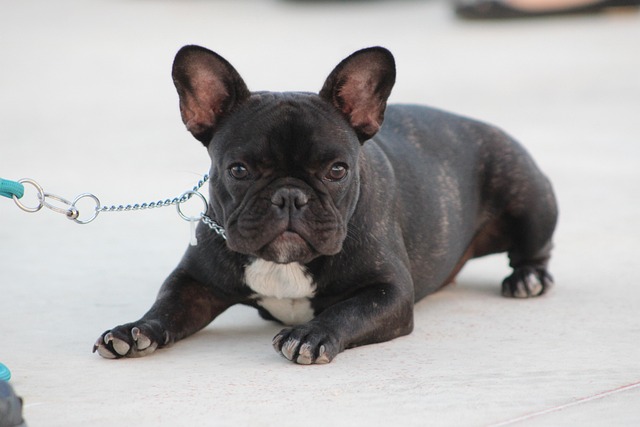
How can I tell if my dog's heatstroke is serious
Let’s be real: It’s a sticky August morning in Los Angeles, and you took your 2-year-old Golden Retriever, Max, for a walk a little later than usual
Canine distemper is a very threatening disease faced by dogs. During the illness of their beloved dogs, owners always try their best to provide them with the best care, hoping to help them overcome the disease. As a common drink, milk is often considered by owners whether it is suitable for dogs with canine distemper. So, is milk good for dogs with canine distemper?
Canine distemper is a highly contact and fatal infectious disease caused by canine distemper virus. Sick dogs will have a series of symptoms such as fever, coughing, vomiting, diarrhea, increased eye and nasal secretions, etc. The immune system suffers a serious blow and the body is extremely weak. In such a difficult time, nutritional support is essential for the recovery of dogs.
From a nutritional point of view, milk is rich in nutrients such as protein, fat, vitamins and minerals. Protein is an important substance that constitutes body cells and tissues, and it has a positive significance for the repair of damaged bodies of sick dogs. A moderate amount of fat can provide high energy, help dogs maintain physical strength, and fight against the consumption caused by the disease. Vitamins and minerals participate in various metabolic processes of the body and help maintain the normal functioning of the dog's body functions. For some dogs with canine distemper who have a severely decreased appetite, the aroma and taste of milk may arouse their interest, stimulate their appetite to a certain extent, and enable them to take in some nutrients, which undoubtedly brings a glimmer of life to the weak dogs.
 However, things are not that simple. The digestive system of dogs is different from that of humans, and many dogs are lactose intolerant. Milk contains lactose. When dogs ingest it, the intestines lack lactase that can effectively break down lactose, and they cannot fully digest lactose, which will cause lactose to be fermented by bacteria in the intestines, producing gas and acidic substances, and then causing diarrhea, bloating, vomiting and other indigestion symptoms. For dogs whose gastrointestinal function is damaged and their digestive ability is weakened due to canine distemper, this situation is undoubtedly worse. Diarrhea will further cause dehydration and electrolyte imbalance in dogs, aggravate the condition, and hinder the body's recovery process.
However, things are not that simple. The digestive system of dogs is different from that of humans, and many dogs are lactose intolerant. Milk contains lactose. When dogs ingest it, the intestines lack lactase that can effectively break down lactose, and they cannot fully digest lactose, which will cause lactose to be fermented by bacteria in the intestines, producing gas and acidic substances, and then causing diarrhea, bloating, vomiting and other indigestion symptoms. For dogs whose gastrointestinal function is damaged and their digestive ability is weakened due to canine distemper, this situation is undoubtedly worse. Diarrhea will further cause dehydration and electrolyte imbalance in dogs, aggravate the condition, and hinder the body's recovery process.
Therefore, when considering feeding milk to dogs with canine distemper, careful evaluation is required. If the dog does not have any discomfort when drinking milk, a small amount of milk can be given as a nutritional supplement and a means of stimulating appetite during the period of canine distemper, but the dog's reaction after eating should be closely observed. If digestive problems occur, feeding should be stopped immediately. If the dog has never been exposed to milk before, or is prone to gastrointestinal discomfort, it is not recommended to feed milk rashly.
In the days when the dog fights canine distemper, the owner's company and care are irreplaceable. Every careful observation and every patient care are the courage to give the dog to overcome the disease. In addition to carefully considering the feeding of milk, you should also consult the advice of professional veterinarians to develop a scientific and reasonable diet plan for the dog. You can choose easily digestible and nutritious prescription foods designed specifically for sick pets. These foods are usually specially formulated to better meet the nutritional needs of sick dogs and reduce the burden on the stomach. The food can also be made into an easily digestible paste for the dog to swallow.
Milk is not absolutely beneficial or harmful to dogs with canine distemper, and it needs to be treated with caution according to the dog's own situation. In this battle against the disease, the owner's attentiveness and scientific care are the key to the dog's recovery. I hope that every dog fighting canine distemper can regain its former liveliness and health under the careful care of its owner, and share good times with its owner again.

Let’s be real: It’s a sticky August morning in Los Angeles, and you took your 2-year-old Golden Retriever, Max, for a walk a little later than usual

You're enjoying a summer afternoon at the park when you notice your dog has stopped panting and appears disoriented - their gums are bright red

Let’s paint the picture: You’re in your Denver apartment, watching your 4-year-old Boston Terrier, Ruby, plop down mid-play session with her favorite toy

Many dog owners notice their pets nails seem shorter after regular walks,but how much does this daily activity actually help?The answer depends on where you walk—concrete sidewalks or asphalt streets gently file nails as a dog's paws hit the ground

Most dog owners notice their pup scooting across the carpet at some point, but few connect it to impacted anal glands. These small sacs near a dog’s rectum secrete a scent for marking territory

Most vets agree that regular dog teeth cleaning is key to avoiding painful dental issues later. For healthy adult dogs, a professional cleaning at the vet’s office every 12 to 18 months usually works well.